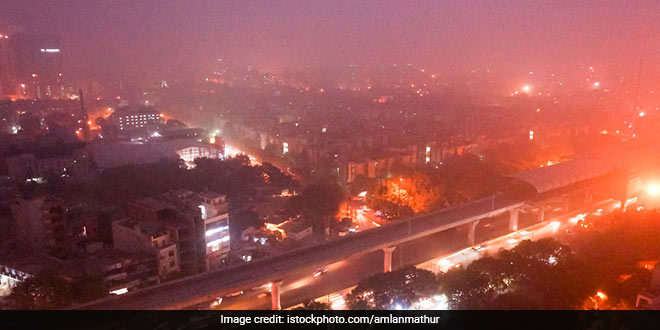New Delhi: Delhi recorded its lowest pollution levels this year on Monday after rains washed away the pollutants and cleansed the air, but the air quality still remained in the “very poor” category, the authorities said. According to the Central Pollution Control Board (CPCB) data, the overall Air Quality Index (AQI) in the city reached 316, which was in the “very poor” category.
As many as 31 areas in the national capital recorded a “very poor” air quality, while two areas registered a “poor” quality air, the CPCB said. Ghaziabad, Faridabad, Gurgaon and Noida in the National Capital Region (NCR) also recorded a “very poor” air quality, it added.
Delhi’s air quality had improved significantly on Sunday after rains washed away the pollutants and cleansed the air on Saturday, the authorities said. The air quality in the national capital has been oscillating between the upper range of “very poor” and “severe” categories for the past two weeks.
This was the first time that the air quality was recorded in the lower range of the “very poor” category, the CPCB said.
The overall PM2.5 level (fine particulate matter in the air with a diameter of less than 2.5 micrometers) was recorded at 160 in Delhi, while the PM10 (fine particulate matter in the air with a diameter of less than 10 micrometers) level was at 243, it added.
An AQI between 100 and 200 comes under the “moderate” category, 201 and 300 is considered “poor”, 301 and 400 “very poor”, while an AQI between 401 and 500 is “severe”. The Centre-run System of Air Quality and Weather Forecasting (SAFAR) said the overall air quality over Delhi was very poor.
Saturday’s rainfall, along with a sufficient wind speed, was enough to wash away air pollutants to an extent and improve the AQI. The air quality is likely to improve further, much faster during the day, as a moderate surface wind speed is positively working to disperse pollutants, which is the key factor now to keep pollution in check under cool and foggy weather conditions, the SAFAR said.
However, it also noted that the respite was not expected to last for more than two days as the relative humidity was very high and temperatures were likely to drop further, which would force the boundary layer to come down and hold the pollutants near the surface. It said the AQI will start increasing gradually from Tuesday.
NDTV – Dettol Banega Swachh India campaign lends support to the Government of India’s Swachh Bharat Mission (SBM). Helmed by Campaign Ambassador Amitabh Bachchan, the campaign aims to spread awareness about hygiene and sanitation, the importance of building toilets and making India open defecation free (ODF) by October 2019, a target set by Prime Minister Narendra Modi, when he launched Swachh Bharat Abhiyan in 2014. Over the years, the campaign has widened its scope to cover issues like air pollution, waste management, plastic ban, manual scavenging and menstrual hygiene. The campaign has also focused extensively on marine pollution, clean Ganga Project and rejuvenation of Yamuna, two of India’s major river bodies.






























